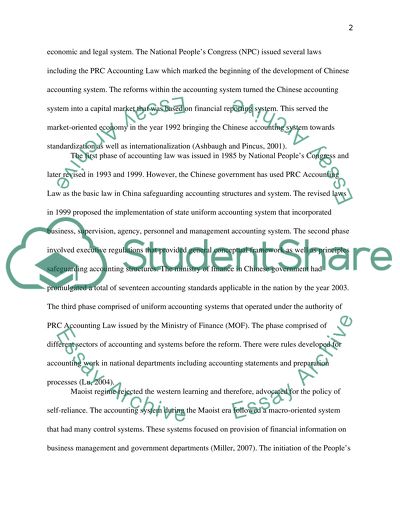Cite this document
(“Accounting systems and structure of China Essay”, n.d.)
Accounting systems and structure of China Essay. Retrieved from https://studentshare.org/finance-accounting/1676434-accounting-systems-and-structure-of-china
Accounting systems and structure of China Essay. Retrieved from https://studentshare.org/finance-accounting/1676434-accounting-systems-and-structure-of-china
(Accounting Systems and Structure of China Essay)
Accounting Systems and Structure of China Essay. https://studentshare.org/finance-accounting/1676434-accounting-systems-and-structure-of-china.
Accounting Systems and Structure of China Essay. https://studentshare.org/finance-accounting/1676434-accounting-systems-and-structure-of-china.
“Accounting Systems and Structure of China Essay”, n.d. https://studentshare.org/finance-accounting/1676434-accounting-systems-and-structure-of-china.


